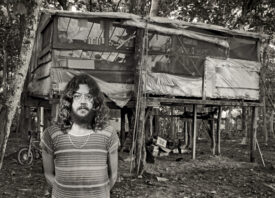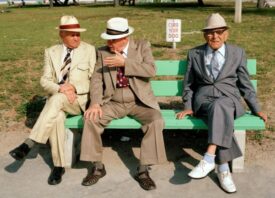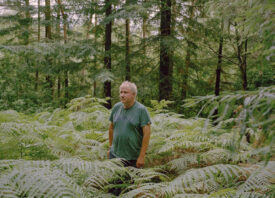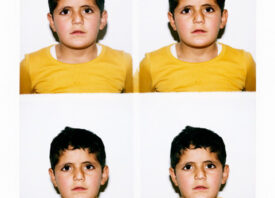Search this site
Captivating Scenes of Summer Camp in the 1970s



Back in 1968, Andy Sweet began spending summers at Camp Mountain Lake, a sleep away camp in Hendersonville, North Carolina. As time went on, the adolescent camper graduated to counselor, then photography instructor, teaching the next generation of secular Jews from South Florida the joys of making photographs.
In 1977 he returned with a mission for his work brought about by a course of study at the University of Colorado at Boulder’s MFA program. As a documentary photographer who had just crossed over to color, Sweet was inspired by the emerging photographers of the time: Robert Adams, Emmet Gowin, and Bill Owens.
“These three photographers all have something in common with the way I work,” Sweet is quoted as saying in the foreword of Hello Muddah, Hello Faddah: Andy Sweet’s Summer Camp 1977 (Letter 16 Press). ‘Their photographs are not the reason of their subject matter. The subject matter is the reason of their work. Belonging, knowing, and understanding, before picking up the camera, is the most determining factor.”

Upon his return to Camp Mountain Lake, Sweet took familiar terrain with a Hasselblad around his neck and a desire to create a series of portraits of pre-teen life set amid the resplendent backdrop of Mountain Lake.
Like all great coming of age stories, Sweet’s work is filled with the quintessential cast of characters deep in the process of self discovery, enjoying the pleasures of escaping their daily lives and creating their own Elysium.
Left to remake society in a vision of themselves, they partake in forming close bonds and creating mini families. Together the campers frolicked and played to their hearts contents, while raging hormones added that extra special touch of drama and romance to their activities.
These photographs, made just five years before Sweet’s death at the age of 28, tell the story not only of campers driven in search of themselves but of a photographer who reveled in the joys of life. Imbued with am understanding that the anthropological aspect is ever present in the work, Sweet made photographs that contextualized the universal human condition within the mores of the American ‘70s.
Long before digital culture and helicopter parenting was even a thought, we see a motley band of kids free to be you and me, as the classic 1970s song went. There’s a distinct lack of self-consciousness that allows these kids to shine in their gawky gloriousness to live their best lives. You can all but hear the strains of Bill Medley and Jennifer Warnes singing, “I had the time of my life.”



All images: © Andy Sweet



